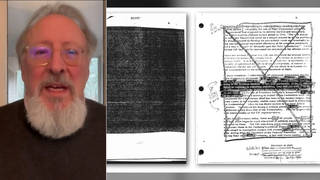
Topics
As tensions increase between the U.S. and Cuba over the fate of Cuba shipwreck Elian Gonzalez, today we are going to take a look at embargo-busting by a growing hip-hop movement in the U.S. and Cuba. The 40-year old US-imposed blockade against Cuba has been one of the main culprits for shortages in the country, and the travel ban has stopped many Americans from visiting Cuba. But despite the embargo, relations between Cuban and American citizens have been flourishing in some areas. One of them is music.
Many people by now may have heard of The Buena Vista Social Club, a compilation of traditional Cuban music featuring some of Cuba’s finest musicians, including Compay Segundo and Ibrahim Ferrer, and put together by American musician Ry Cooder. It was also made into a successful film. But many may have not heard of Cuba’s budding hip- hop artists, whose music is beginning to reach audiences outside Cuba.
About five years ago, a group of rap artists and producers in the U.S. and Cuba organized a rap festival that has become known as “Black August.” It is a two-city concert, taking place in New York and Havana that brings together hip-hop artists from both countries. It is a celebration of hip-hop as a revolutionary cultural art form, a forum for artists to address issues such as racism, police brutality and political prisoners. And the first U.S.-produced compilation of Cuban hip-hop is now in the making.
Guests:
- Kofi Taha, U.S. organizer of Black August, the Cuban hip-hop festival, and writer on hip-hop. Call Black August: 212.741.7100 x-215.
- Miguel Carlos, record producer in New York who has put together the first compilation of Cuban rap called “Cuban Hip-Hop All Stars.” He cannot be identified by his real name, because he fears prosecution for breaking the Helms-Burton law.
- Pablo Herrera, Cuban hip-hop producer, poet and linguist from Havana.
- Julio Cardenas, rapper from the group RCA (Raperos Crazy Alamar). Speaking from Alamar, just outside Havana. He is joined by his MC Yohan.
- Kokino, rapper from the group “Anonimo Consejo” (Anonymous Advice). Speaking from Havana.
- Raquel Rivera, Journalist who writes about hip-hop and is a participant in the Black August project.
Related links:











Media Options